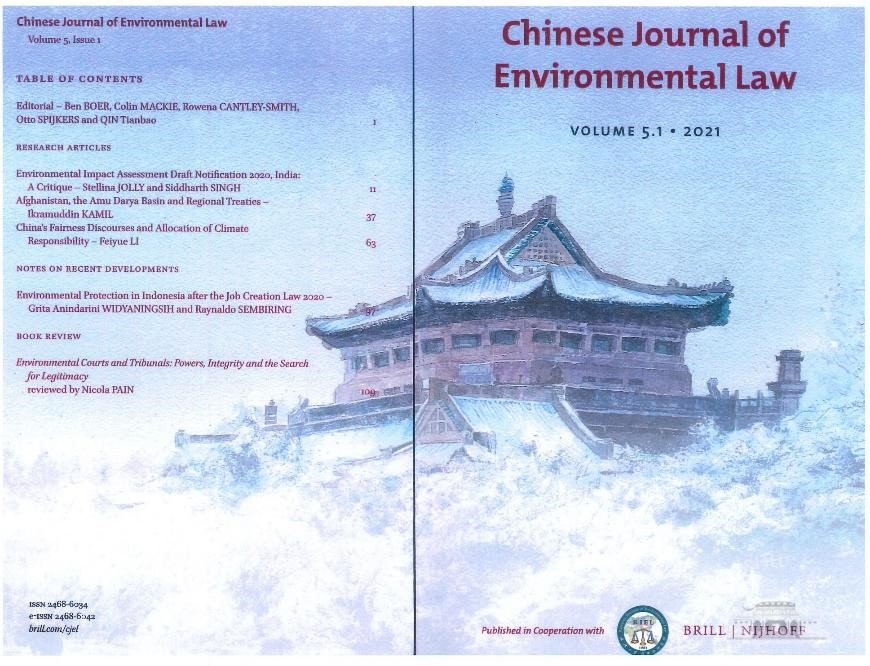Recently, the Chinese Journal of Environmental Law, an English academic journal sponsored by the Research Institute of Environmental Law of Wuhan University and published in collaboration with the international leading academic publisher Brill, was selected for inclusion in the Scopus citation database. This is further evidence of the important progress made by the Research Institute of Environmental Law in the journal construction following the official inclusion of the journal in the Emerging Sources Citation Index (ESCI) database.

Cover of the Chinese Journal of Environmental Law
The Scopus Citation Database is the world’s largest database of indexed abstracts of peer-reviewed literature, with more than 24,000 sources in over 40 languages from more than 5,000 publishers worldwide. Literature types include journals, conference papers, book series, patents and so on, covering disciplines such as natural science, technology, medicine, social science, arts and humanities, and providing intelligent tools for tracking, analysis and virtual search. The database is subject to strict review criteria, with journals being re-evaluated annually, requiring peer-reviewed articles, a thorough code of academic ethics and editorial and publication processes, and a certain level of academic influence and international visibility in their subject areas.
In recent years, Scopus’ journal evaluation metrics SNIP (Source Normalized Impact per Paper) and SJR (SCImago Joumal Rankings) have been widely used in academic evaluation. Due to the universality, accuracy and representativeness of its data, the QS World University Rankings, the Times comprehensive rankings and professional rankings of British universities, as well as China’s best university rankings released by Shanghai Soft Science all regard the Scopus database as an important data source and ranking basis.
The Chinese Journal of Environmental Law is the first formal academic periodical publication in the field of environmental law in China. It was formally founded and published in 2017. Professor Qin Tianbao and Professor Ben Boer from the Research Institute of Environmental Law of WHU act as co-editors, and top environmental law scholars from around the world serve as advisors and editors. In order to improve the quality of papers and ensure fair selection, the Chinese Journal of Environmental Law adopts the internationally accepted peer review system. Since its founding, the journal has continuously published five volumes and ten issues. It has developed into a high-quality dialogue and cooperation window for Chinese and foreign environmental law scholars and an internationally renowned academic exchange platform. In order to encourage academic exchanges and the dissemination of knowledge, the Chinese Journal of Environmental Law adopts the model of Open Access Publishing, which is an increasingly common feature in academic publishing, ensuring free access to readers of any of the articles published by the Chinese Journal of Environmental Law. All articles will be available on the Web of Science and through Scopus and readers are welcome to search and download the journal articles.
According to the head of the Research Institute of Environmental Law, the inclusion in the Scopus citation database is evidence of the academic quality of the Chinese Journal of Environmental Law, its international influence and its growing recognition by the international academic community. The institute will continue to run the journal to further enhance the strength of China’s environmental law construction and promote the internationalization of China’s environmental law.
Link to the Chinese Journal of Environmental Law:
https://brill.com/view/journals/cjel/4/2/cjel.4.issue-2.xml
Rewritten by Shen Yutian
Edited by Yu Jianan